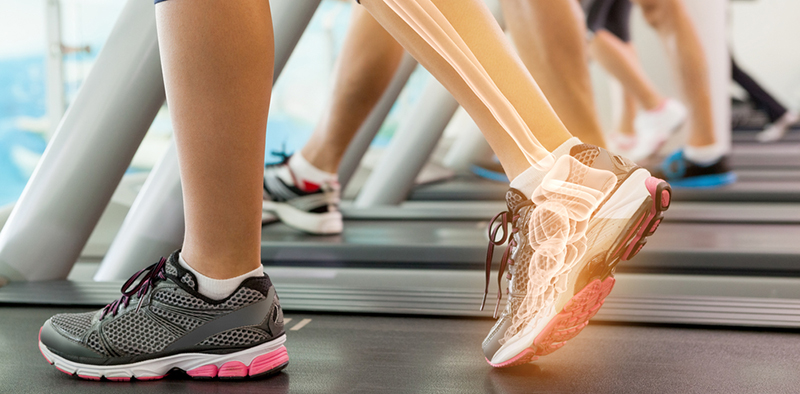Before and after photos, or a decreasing number on the scale, might motivate you in your health pursuits but what about results you can’t see? We’re talking about your bones. One program is reminding us how important it is to keep them healthy, not just as children, but for life.
If you were told to drink milk for calcium as a kid, your parents were obviously right. Milk is a great source of the mineral we know to be a “major building block of bones”. But there are plenty more sources of calcium and there are other factors that contribute to overall bone health.
Healthy Bones Australia says the equation looks something like this: calcium + exercise + sunshine = healthy bones.
The program, an initiative of Osteoporosis Australia, is raising awareness of bone health at every age and encouraging us all to follow the equation and hopefully reduce the risk of fractures as we grow older.
Let’s break it down so your bones don’t.
Calcium
We know Australians aren’t getting enough calcium. Check out House Call Doctor’s piece on the most common vitamin and mineral deficiencies.
The Australian Bureau of Statistics reported, “nearly three quarters of females, 73 per cent, and half of all males, 51 per cent, aged two years and over did not meet their calcium requirements based on their intakes from food.”
This matters because as Healthy Bones Australia explains, “bone also acts as a storage bank for calcium so when we don’t get enough calcium in our diets, the body will snatch the calcium it needs from our bones to use for other important functions.”
“If it is not replaced our bones will become porous and lose their strength.”
On average, men and women aged 19 to 70 and 50 respectively should aim for 1,000 milligrams of calcium each day.
Healthy Bones Australia has a handy calculator so you can work out your individual recommended dietary intake. The calculator will also give you an idea of your current overall bone health and where you can improve.
Dairy foods aren’t the only source of calcium:
- Tofu: 832 mg/serve
- Sardines canned in water: 486 mg/serve
- Grilled snapper: 163 mg/serve
- Dried figs: 160 mg/serve
Check out Healthy Bones Australia’s full list
Exercise
Not all exercise is equal when it comes to bone health. The key is to perform movements that put our bodies under some weight or resistance.
Healthy Bones Australia recommends these types of exercise:
- Weight-bearing exercises: Brisk walking, hiking, stair climbing, tennis, netball, jogging and aerobic dance
- Resistance training: Exercises can be machine-based (leg press, seated rowing) or done using free weights
- High-impact exercise: Skipping, jogging, jumping, netball and basketball
- Balance training: Standing on one leg with eyes closed, sitting on an exercise ball, tai-chi and yoga
Sunshine
Bones need vitamin D to help the calcium in our gut be absorbed. We can get this naturally from a daily five to 10 minute period of exposure to the mid-morning or afternoon sun. The need for vitamin D needs to be balanced with the dangers of sun cancer so use Healthy Bones Australia’s calculator to make sure you’re getting enough, but not too much.
If you’re worried about your bone health, speak to your GP or if it’s after hours make an appointment with House Call Doctor online, via the app or by calling 13 55 66.





